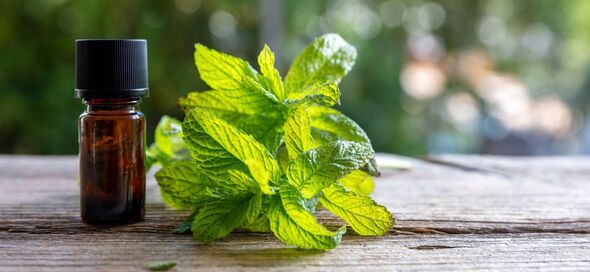Lifestyle
Gardeners Embrace Peppermint Oil to Deter Woodlice Effectively

Gardeners are increasingly turning to peppermint oil as an effective and natural method to deter woodlice. While many associate peppermint with indoor fragrance, its application in outdoor settings is gaining attention due to its pest-repelling properties. The oil is readily available and offers a safe alternative to chemical sprays, promoting a healthier gardening environment.
According to the pest control organization Eradi Control, peppermint oil, along with lavender and tea tree oils, effectively repels woodlice. Gardeners can utilize this natural remedy by mixing a few drops of the oil with water in a spray bottle and applying it to areas where woodlice are frequently observed. The organization suggests placing citrus peels or sprinkling coffee grounds in infested areas as additional deterrents.
Woodlice are particularly attracted to moisture and decomposing organic matter. Excessive dampness or warm conditions in gardens and homes can create an inviting habitat for these pests. They often feed on rotting wood, mildew, and decaying plant material. Being vigilant about these conditions can help gardeners prevent woodlice from becoming a problem.
Natural repellents like peppermint oil not only keep these pests at bay but also contribute a refreshing scent to the environment. This approach stands in contrast to the use of harsh chemicals, which can have detrimental effects on local wildlife and the surrounding ecosystem. As gardeners seek to maintain a balance between pest control and environmental health, peppermint oil emerges as a favorable option.
According to Which Magazine, woodlice can damage young plant growth by nibbling on stems and aerial roots. If a gardener has already addressed issues with slugs and snails but notices damage to soft or young plant tissue, woodlice may be the culprits. In cases where older, firmer material is affected, other pests such as cutworms or caterpillars might be involved. Recognizing these signs allows gardeners to address specific infestations more effectively.
To maximize the effectiveness of peppermint oil, it is essential to identify and mitigate the factors that attract woodlice. Keeping gardens clear of decaying matter and ensuring proper drainage can significantly reduce the likelihood of infestations. By adopting a proactive approach, gardeners can create a less hospitable environment for woodlice while utilizing natural methods to protect their plants.
In summary, incorporating peppermint oil into gardening practices can serve as an effective strategy for managing woodlice. Its availability and natural properties align with the growing trend towards sustainable gardening methods. As awareness of these alternatives continues to rise, more gardeners are likely to explore the benefits of peppermint oil and other natural repellents in their efforts to maintain healthy, thriving gardens.
-

 Health3 months ago
Health3 months agoNeurologist Warns Excessive Use of Supplements Can Harm Brain
-

 Health4 months ago
Health4 months agoFiona Phillips’ Husband Shares Heartfelt Update on Her Alzheimer’s Journey
-

 Science2 months ago
Science2 months agoBrian Cox Addresses Claims of Alien Probe in 3I/ATLAS Discovery
-

 Science2 months ago
Science2 months agoNASA Investigates Unusual Comet 3I/ATLAS; New Findings Emerge
-

 Science2 months ago
Science2 months agoScientists Examine 3I/ATLAS: Alien Artifact or Cosmic Oddity?
-

 Entertainment2 months ago
Entertainment2 months agoLewis Cope Addresses Accusations of Dance Training Advantage
-

 Entertainment5 months ago
Entertainment5 months agoKerry Katona Discusses Future Baby Plans and Brian McFadden’s Wedding
-

 Science2 months ago
Science2 months agoNASA Investigates Speedy Object 3I/ATLAS, Sparking Speculation
-

 Entertainment5 months ago
Entertainment5 months agoEmmerdale Faces Tension as Dylan and April’s Lives Hang in the Balance
-

 World3 months ago
World3 months agoCole Palmer’s Cryptic Message to Kobbie Mainoo Following Loan Talks
-

 World4 weeks ago
World4 weeks agoBailey and Rebecca Announce Heartbreaking Split After MAFS Reunion
-

 Science2 months ago
Science2 months agoNASA Scientists Explore Origins of 3I/ATLAS, a Fast-Moving Visitor









